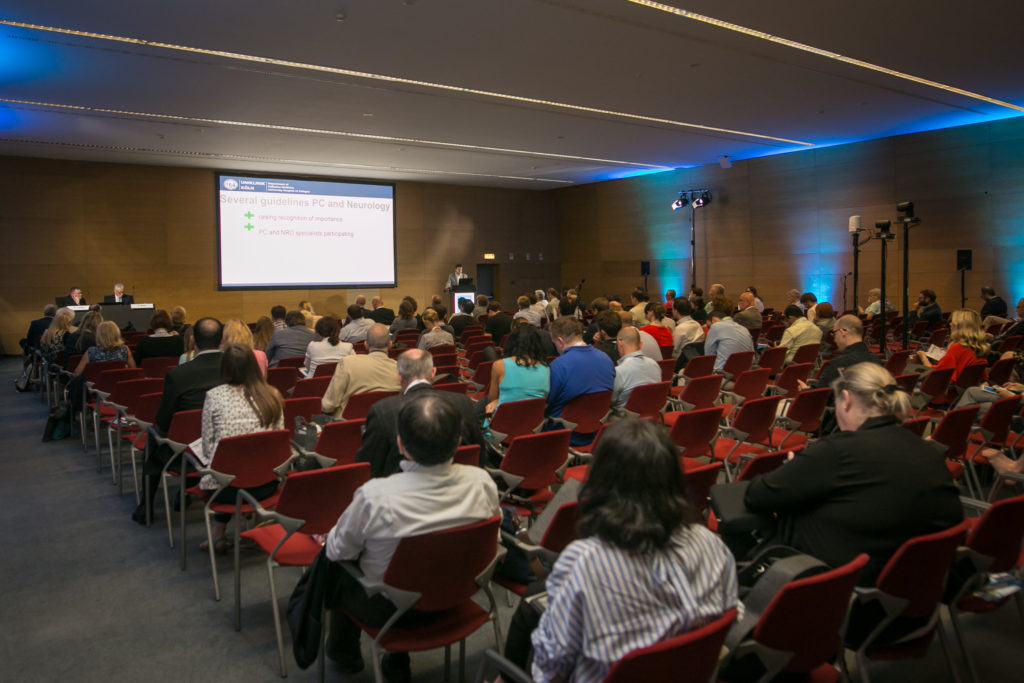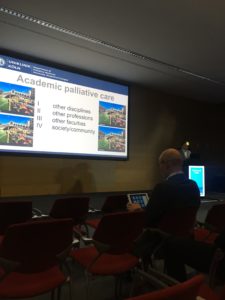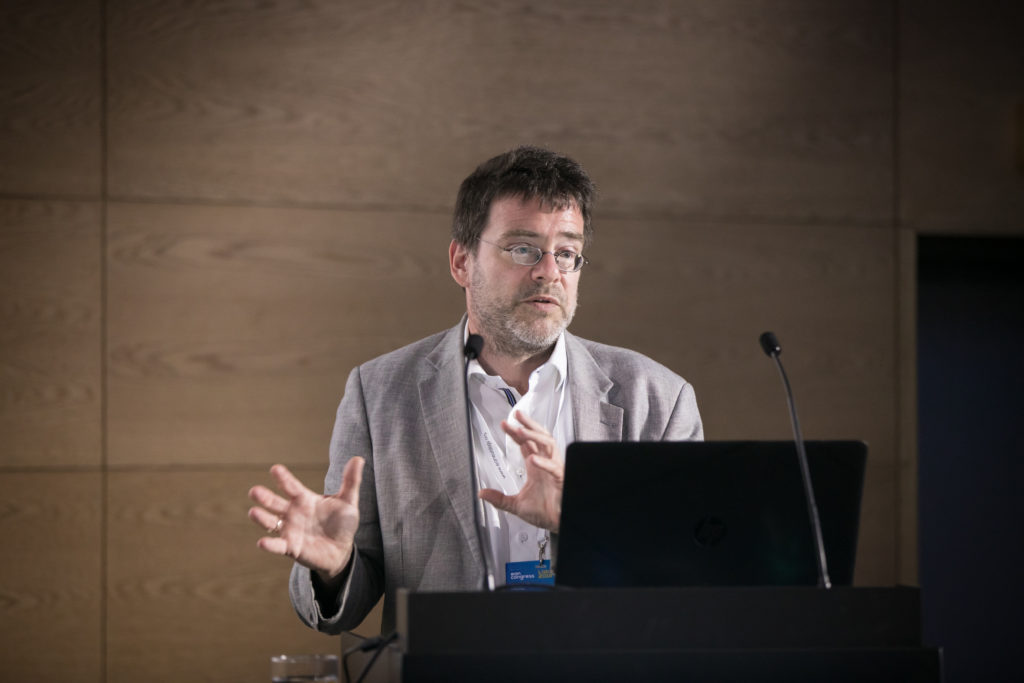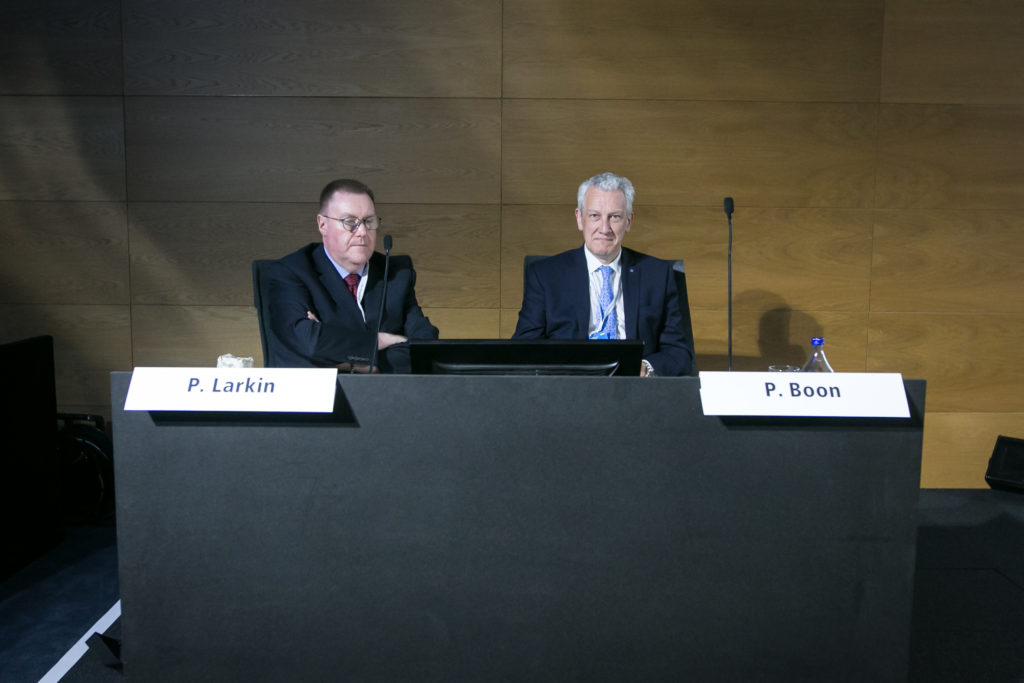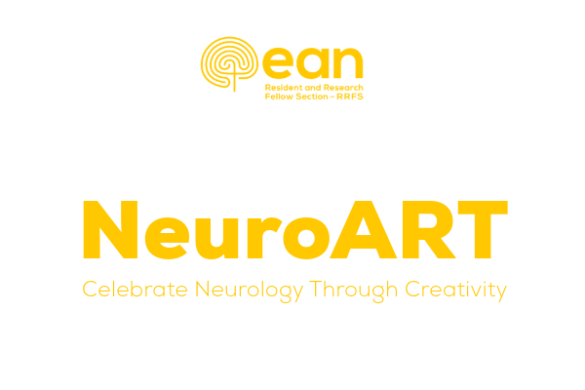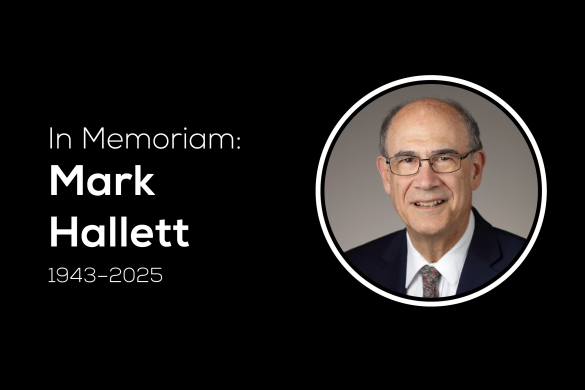EAN/EAPC Symposium 4: Palliative care and neurology
Chairpersons:
Paul Boon, Ghent, Belgium
Philip Larkin, Dublin, Ireland
Palliative care from a neurologist’s perspective: the evidence
David Oliver, Canterbury, United Kingdom
Guidelines in progress across Europe
Raymond Voltz, Cologne, Germany
What can a neurologist learn from palliative care specialists?
Simone Veronese, Torino, Italy
Palliative care has been used and reserved mainly for the care of patients with oncological disorders and end-of-life management. The better understanding of neurological conditions and their pathophysiological mechanisms has stressed the need for application of palliative care measures also in patients with neurological disorders.
1 Palliative care from a neurologist’s perspective: the evidence
Prof. David Oliver, University of Kent, opened the session. He started with the 2002 definition by World Health Organisation (WHO) on palliative care: an approach that improves the quality of life of patients and their families facing problems associated with life-threatening illness, through the prevention and relief of suffering, early identification and impeccable assessment and treatment of pain and other problems, physical, psychosocial and spiritual. Prof. Oliver then took us through different aspects of palliative care: physical, psychological (emotional), and spiritual. He mentioned different important issues that have to be considered, such as symptoms (e.g. pain, dyspnea, dysphagia, incontinence, constipation, speech problems, delirium, anxiety/depression), psychosocial care for the patient (multiple losses (physical, cognitive, emotional), fear of disease, fear of death and dying), as well as psychosocial care of family (role changes, losses (patient, within partnership), fears of the disease, death and dying…) and spiritual aspects (not necessarily religious, ideas about deeper meaning of life, why me?, fears of dying, fears of death).
He also talked about the EAN / EAPC Consensus on palliative care in neurology aimed at ensuring palliative care approach, with advance care planning, and early integration of care depending on the underlying diagnosis.
He emphasized the role of the multidisciplinary team including at least three professions (physician, nurse, social worker….), and published literature that supports the increased survival (specialist multidisciplinary team and survival benefit in ALS patients). He then talked about evidence for palliative care effectiveness in neurology and took us through published literature that supports symptom improvement, caregiver burden ease and cost-effectiveness in MS, as well as symptom improvement (pain, breathlessness, sleep disturbance, bowel problems), quality of life, and death rate in MS, ALS, PD, PDP.
2 Guidelines in progress across Europe
Prof. Raymond Voltz, University Hospital of Cologne, Germany, talked about reasons for guidelines and need to move forward in the field by connecting with other disciplines, professions, faculties, society/ community. Early palliative care trials in oncology demonstrate to meet the “triple aims”: better health, improved care, lower cost. Prof. Voltz emphasized the need for palliative care and neurology specialist to work together due to overlapping features of palliative care.
In order to address the issues of palliative care, the following are necessary: teams, publications, working groups, guidelines. Prof. Voltz then talked about principles of guideline development (methodology, scientific, clinical evidence, acceptance, willingness for consensus process, money, workforce…), and key recommendations by formal consensus. He then referred to the current guidelines (A consensus review on the development of palliative care for patients with chronic and progressive neurological disease from 2016 by D. J. Oliver et al., Eur J Neurol. 2016 Jan;23(1):30-8.). He then talked about several guidelines in palliative care and neurology raising recognition of importance, with palliative care and neurology specialists participating.
3 What can a neurologist learn from palliative care specialists?
Dr. Simone Veronese, Turin, Italy, talked about expectations from palliative care, different tools and a team approach to address the needs of patients and their families, including bereavement consoling. Palliative care is applicable early in the course of illness and it provides relief from pain and other distressing symptoms, affirms life and regards dying as a normal process, intends neither to hasten or postpone death, integrates the psychological and spiritual aspects of patient care, offers a support system to help patients live as actively as possible until death and offers a support system to help. He mentioned Cicely Saunders, founder of the Hospice Movement. He then talked about useful tools: Palliative care Outcome Scale (POS), Australia-modified Karnofsky performance scale (AKPS), Phase of illness (OACC, King’s College London), The Gold Standards Framework (GSF) Proactive Identification Guidance (PIG), as well as other different useful tools for palliative care. Palliative care offers accurate assessment and treatment to patients and care-givers’ needs.
Dr. Katarina Ivana Tudor
Department of Neurology
University Hospital Center Zagreb
Croatia

